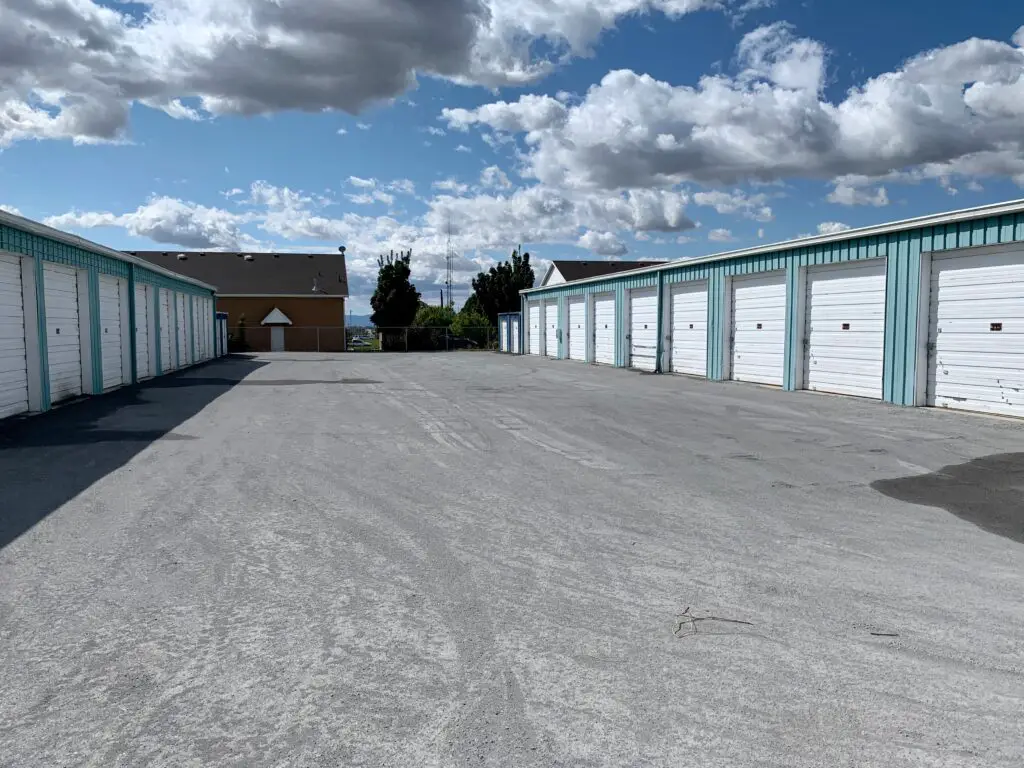When it comes to building roads, there are two main choices: asphalt vs concrete. Both materials have their pros and cons, but which one is the better choice?
What is Asphalt vs Concrete Roads?
Asphalt vs concrete roads is the two most common types of roads in the world. They are both made from different materials and have different benefits. Asphalt roads are made from a mixture of gravel, sand, and asphalt. This mixture is then compacted to form a solid surface. Concrete roads are made from a mixture of cement, sand, and gravel. This mixture is then compacted to form a hard, durable surface.
The Life Span of Asphalt Roads
When it comes to asphalt vs concrete roads, one of the key considerations is the life span of each type of road. Asphalt roads have a shorter life span than concrete roads, typically 20-30 years compared to 30-40 years for concrete roads. However, asphalt roads are easier and less expensive to repair and maintain, so they may be a better option for areas with heavy traffic or large vehicles.
The Life Span of Concrete Roads
Once upon a time, concrete roads were built to last. They were made with quality materials and were expected to withstand years of wear and tear. But today, the average lifespan of a concrete road is only 20-30 years. Why the drastic decrease?
There are a few factors at play. First, the quality of concrete has decreased over the years. Second, the amount of traffic that roads have to deal with has increased exponentially, putting more strain on the surface. And finally, weather conditions have become more extreme, with more Freeze-Thaw cycles and heavier rains, both of which can damage concrete.
So what does this mean for you? If you’re planning on building or repairing a concrete road, you must be aware of its relatively short lifespan. You’ll need to budget for repairs every few years and be prepared to replace the road entirely every two or three decades.
Asphalt Road Specification
Asphalt roads are the most common type of road in the United States. They are typically made from a mixture of asphalt and aggregate, with the asphalt providing a smooth, hard surface for vehicles to travel on.
There are a few different types of asphalt mixtures that can be used for roads, each with its own advantages and disadvantages. Hot mix asphalt is the most common type used for paved roads. It is made by mixing asphalt and aggregate at high temperatures, then laying it down in layers.
Cold mix asphalt is another type that can be used, but it is not as durable as hot mix and is not recommended for high-traffic areas. It is made by mixing asphalt and aggregate at lower temperatures, so it can be applied in colder weather.
chip seal is a type of surface treatment that combines hot mix asphalt with aggregate chips or gravel. It provides a good grip for vehicles and can resist wear from traffic better than hot mix alone. However, it can be more susceptible to cracking in cold weather.
Concrete Road Specification
Concrete roads are built to very specific standards. The pavement thickness, the subbase material, and the reinforcement requirements are all specified in order to create a durable, long-lasting road. Asphalt roads, on the other hand, do not have such stringent requirements. This means that asphalt roads can be built faster and at a lower cost than concrete roads.
However, this also means that asphalt roads are not as durable as concrete roads and will require more maintenance over time.
The Standard Thickness of Asphalt Road
The thickness of an asphalt road is typically between 75mm to 100mm. The thickness of concrete roads is generally between 200mm to 3oomm.
When it comes to concrete roads, the standard thickness is generally around 225mm. This thickness is designed to withstand tremendous weight and traffic without succumbing to wear and tear. In fact, concrete roads are often used in high-traffic areas because they can handle a large volume of traffic without issue. Asphalt roads, on the other hand, are not as thick as concrete roads. The standard thickness for an asphalt road is only about 50mm. This thinner layer can’t handle as much weight or traffic as a concrete road, which is why you often see asphalt roads in residential areas with lighter traffic.
The Pros and Cons of Asphalt Roads
There are many factors to consider when choosing between asphalt vs concrete roads. Some of these include cost, durability, maintenance, and weather conditions. Here, we will take a closer look at the pros and cons of each type of road surface to help you make an informed decision.
Asphalt roads are typically less expensive to construct than concrete roads. They also require less maintenance and are easier to repair. However, they are not as durable as concrete roads and can be damaged by extreme weather conditions.
Concrete roads are more expensive to construct but offer a longer lifespan and greater durability. They can withstand extreme weather conditions and require fewer repairs over time. However, they require more regular maintenance than asphalt roads.
The Pros and Cons of Concrete Roads
There are many factors to consider when choosing between asphalt vs concrete roads. Cost, durability, and maintenance are some of the most important considerations. Asphalt is typically less expensive than concrete, but it doesn’t last as long. Concrete roads are more durable, but they require more maintenance.
Here are some of the pros and cons of each type of road:
Asphalt Road Pros
- Less expensive than concrete
- Can be repaired relatively easily
- Can be resurfaced to extend its life
Asphalt Road Cons
- Shorter lifespan than concrete
- More susceptible to damage from weather and traffic
- Requires more frequent maintenance
Concrete Road Pros
- More durable than asphalt
- Less likely to be damaged by weather or traffic
- Low maintenance costs
Concrete Road Cons
- More expensive than asphalt
- Difficult to repair
- Requires specialized equipment for installation
Asphalt vs Concrete Which One is Better?
If you’re trying to decide between asphalt vs concrete for your next road project, it’s important to weigh the pros and cons of each material. Asphalt is typically less expensive than concrete and easier to repair, but concrete lasts longer and requires less maintenance. Here’s a closer look at the two types of roads:
Asphalt roads are made from a mixture of gravel, sand, and bitumen (a type of black, sticky petroleum). The bitumen binds everything together and gives the asphalt its smooth, black surface. Asphalt roads are popular because they’re relatively inexpensive to construct and maintain. They can also be repaired more easily than concrete roads – simply patching up small cracks or potholes as they appear. However, asphalt surfaces can deteriorate over time, especially if they’re not properly sealed or maintained.
Concrete roads are made from a mixture of cement, water, sand, gravel, and sometimes other ingredients like fly ash or slag. Concrete roads are much more durable than asphalt roads – they can last for decades with little to no maintenance. However, they’re also much more expensive to construct in the first place. Plus, if concrete roads do need repairs, they can be costly and difficult to maintain.
How to Choose the Right Road for Your Project
When it comes to choosing the right road surface for your project, it is important to consider all of the options. Asphalt vs concrete are two of the most popular choices, but there are also other options available. Each type of road has its own advantages and disadvantages, so it is important to choose the one that is right for your specific project. Here is a comparison of asphalt vs concrete roads to help you make the best decision for your project.
Asphalt Roads
Asphalt roads are made from a mixture of aggregate (crushed stone, gravel, sand, etc.) and asphalt binder. The binder is what binds the aggregate together and gives the road its strength. Asphalt roads are typically less expensive to construct than concrete roads. They are also easier to repair than concrete roads since the asphalt can simply be patched if there is damage. However, asphalt roads are not as durable as concrete roads and they can be more difficult to keep clean.

Concrete Roads
Concrete roads are made from a mixture of cement, aggregate (crushed stone, gravel, sand, etc.), water, and chemical admixtures. The cement is what gives the concrete its strength and durability. Concrete roads are much more durable than asphalt roads and they can last for decades with little or no maintenance.

Conclusion
Asphalt vs Concrete Roads: Which is Best?
The debate between asphalt vs concrete roads has been going on for years. There are pros and cons to each type of road, but ultimately it comes down to a matter of preference. Asphalt roads are less expensive to construct and maintain, but they don’t last as long as concrete roads. Concrete roads are more durable, but they can be more expensive to build and repair.
What is the best road surface?
There are two main types of roads: asphalt vs concrete. Asphalt roads are made of a mixture of gravel, sand, and bitumen, and are typically cheaper to construct than concrete roads. However, they don’t last as long as concrete roads and can be more susceptible to potholes and other damage. Concrete roads are made of cement, sand, and aggregate, and are more expensive to construct. However, they are much more durable than asphalt roads and require less maintenance over time.
Why does Texas use concrete roads?
There are a few reasons why Texas might prefer concrete roads over asphalt roads. For one, concrete is more durable than asphalt, so it can handle more wear and tear. It’s also less likely to crack in extreme temperatures, which is important in a state like Texas where the summers can be incredibly hot. Additionally, concrete reflects sunlight better than asphalt, so it helps keep the road cooler, which again is important in a hot climate.
What will replace asphalt roads?
There are many debates about what will replace asphalt roads. Some say that concrete roads are stronger and last longer, while others say that asphalt is more flexible and can handle more wear and tear. However, there are also environmental concerns to consider. Asphalt is made from petroleum, which is a non-renewable resource. Concrete is made from limestone, which is a renewable resource. So, when it comes to deciding which material to use for roads, it’s important to consider all of the factors involved.

